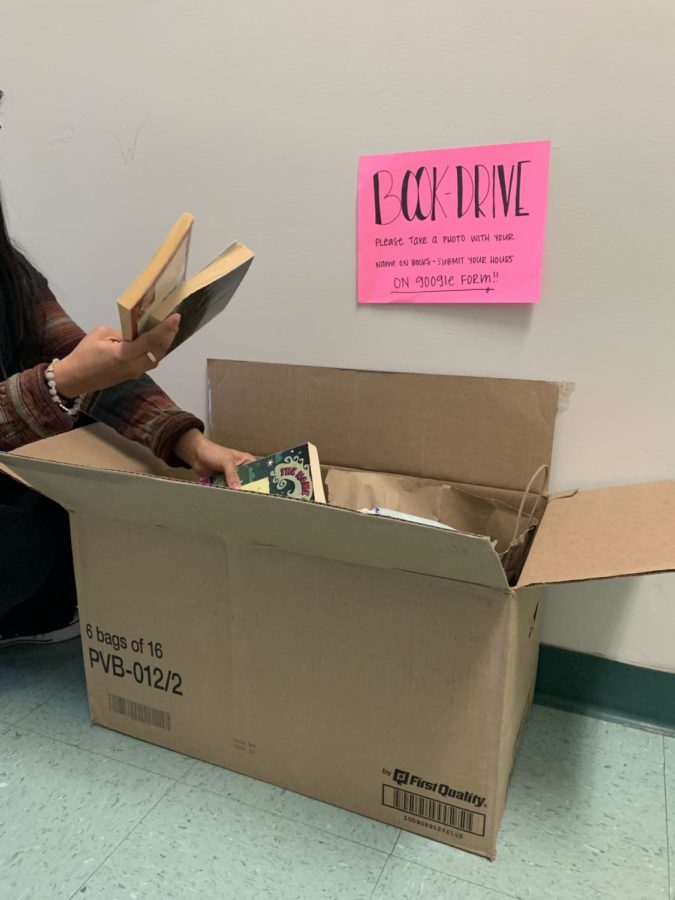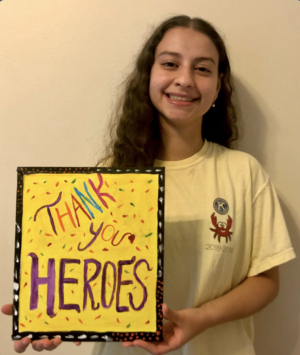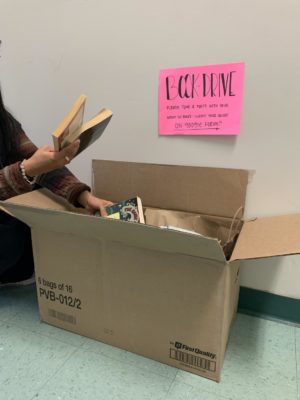Pro: food drives and donations provide ease, lessen stress
Key Club members can receive 30 minutes of service for each donated book, with a maximum of six book donations.
May 10, 2023
Volunteers buzz around a bustling community center organizing donations, finishing care packages and mailing out bundles of goods to those in need. However, despite their best efforts, they struggle to make ends meet due to the limited donations they receive.
Donations, no matter how small, make a positive impact on society by allowing students opportunities to give back to their community while fulfilling service hour requirements. With these vital donations, centers can not only achieve their goals, but can exceed them by making a large difference in the lives of those in need.
Although the Stanford Social Innovation Review states that giving time instead of money is more charitable, donating ultimately supports non-profit organizations. Additionally some believe that donations do not make a genuine impact in the community, but as long as the greater focus remains to make a positive impact on the community, donations are a flexible way to receive service hours.
Within CHS, the National Honor Society has held multiple food drives this year, giving students the opportunity to receive service hours in regards to the number of items they brought. The canned food drive, held in the beginning of December, had a sizable impact on society by addressing food insecurities within Fairfax County, with over 116 students of the 500 NHS members participating.
Students were able to help ensure families the access to nutritious meals in a group effort, as organizing an event of such a magnitude is difficult. Not only were students able to receive hours according to their meaningful contributions, but they were able to impact a growing problem within their community.
In addition to their food drives, the National Honor Society had offered a $5 money donation towards the cultural night that ethnic groups at CHS were hosting in March. However, their post was quickly revoked due to fairness disparities. Despite the donation elimination, money donations have the ability to directly impact a center as many service centers rely on funds to run. Most donation centers have existing volunteers to sort through and organize donations, but many still lack money and items as sponsors.
With the help of the money donation, the National Honor Society could have directly helped the school community and could have also provided students with more attainable service hours within their existing schedules.
Many students are engaged in time-consuming after school activities like sports, work, games and homework. Food drives and money donations cater to those that follow busy schedules by providing them convenient timings to donate. This flexibility is especially important for those who are engaged in multiple honor societies and groups that require many service hours.
While donations are an easier form of receiving service hours, as long as the greater focus is to make an impact in the community, they should remain for students. Denying students the opportunity to donate would make them less willing to participate in drives and donations in their future, causing long-term issues in the community. Offering donations as a form of completing service hours allows students to become educated with problems within their society and gives them an opportunity to make an immediate and long-standing impact.








